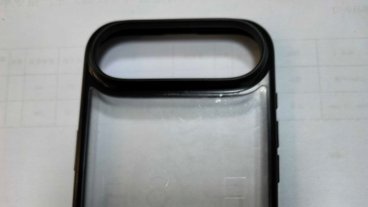Hacking group REvil's stolen MacBook Pro schematics are now being circulated among repair professionals, who say the information is helping them recover lost data.
Leaked Apple schematics and extortion threats have since been removed from the dark web
When ransomware group REvil tried to extort Apple, it released schematics for a future MacBook Pro, and now those plans are in the wild. Reportedly, they are being circulated by repair professionals who are using them not to make their own MacBook Pro equivalents, but to better understand how the machines are put together.
According to Vice, the schematics are helping repairers attempting to recover lost data for customers.
Louis Rossman is currently crowdfunding to bring a Right to Repair initiative directly to voters in Massachussettes. His hope is to get that state, and then others, to be forced to make companies like Apple more open to authorized independent repair businesses like his own Rossmann Repair Group.
"Our business relies on stuff like this leaking," Rossmann told Vice. "This is going to help me recover someone's data. Someone is going to get their data back today because of this."
Apple-authorized repair venues perform board swaps to fix devices, or in the case of the iPhone, hand the owner a replacement device. The company will then repair the damaged component at one of several central depots, and generally return a component like a motherboard to service stock.
Rossmann will, when able, source an individual circuit on a board and replace that for the consumer directly. This can be cheaper for the owner, and if the storage isn't impacted by the failure, return the user's original device to a user intact with all that was contained in the soldered-in storage.
"I'm not saying I'm in favor of people hacking into computers to get this information," he continued. "I would prefer to get this by going to Apple and giving them $1,000 every year to get this information."
The stolen documents are PDFs that include wiring diagrams, and show layouts of a MacBook Pro's logic board. The designs are copyright Apple, and the company does not release them — but repairers say they should.
"Armed with a schematic, you cannot build a phone or a MacBook," said Gay Gordon-Byrne, executive director of the Repair Association. "The diagram is basically, this part connects to this part. You don't know what the parts are or what they do. You just know that there's a connection."
"The idea that there's some creativity in the way the lines are drawn is kind of ridiculous, but that's the rule," she continued.
While these particular schematics refer to an as-yet-unreleased product, repairers say that they are useful because much of the technology used to does not change radically.
"Apple is acting like they haven't been using the same circuits for years," Justin Ashford of YouTube channel, Art of Repair, told Vice. "There are so many things that are identical from phone to phone that are just kind of moved around. This whole thing about arguing about trade secrets is horse shit."
"I'm still waiting for someone to tell me legitimately what having a wiring diagram ahead of time does to hurt them, especially since they used to give it away," he continued. "I'm going to use it and I'm going to help people with it."
The documents that hacking group REvil posted online have since been removed.
This leak of documents has seemingly been an unexpected help to authorized repair firms, who have long been in dispute with Apple over just how much work they are able to do on devices.
Independent firms continue to champion the Right to Repair — across all technology, from farm equipment to iPhones — and Apple has typically resisted. Internal Apple documents have shown that the company is worried that poor repair work would reflect badly on its products.
Colorado's Right to Repair bill recently failed to become law. However, the European Union is continuing to press ahead with aims to require more rights for consumers to repair their devices.
Stay on top of all Apple news right from your HomePod. Say, "Hey, Siri, play AppleInsider," and you'll get latest AppleInsider Podcast. Or ask your HomePod mini for "AppleInsider Daily" instead and you'll hear a fast update direct from our news team. And, if you're interested in Apple-centric home automation, say "Hey, Siri, play HomeKit Insider," and you'll be listening to our newest specialized podcast in moments.
 William Gallagher
William Gallagher








-m.jpg)






 Marko Zivkovic
Marko Zivkovic
 Amber Neely
Amber Neely

 Andrew Orr
Andrew Orr
 Christine McKee
Christine McKee


 Mike Wuerthele
Mike Wuerthele







11 Comments
There's so many curiosities in those repairer's quotes, and they don't do themselves any favours.
For example:
"Apple is acting like they haven't been using the same circuits for years" - so the repairer states that the circuit diagrams haven't meaningfully changed (meaning they're familiar with the layouts), so why are the diagrams helpful if they already know them? It can't be for small incremental changes because those changes don't apply to an available product.
"
"
"
For consideration from Forbes: Right To Repair: The Last Stand In Checking Big Tech’s Power Grab
Additionally I have found the flexibility and speed of independent (if authorized) repair shops to be most helpful, as well as the ability to adjust in house the storage or memory for need rather than being locked in. Usually this involves upgrades and then perhaps repurposing side, swap or downgrades later in a machine's useful life.